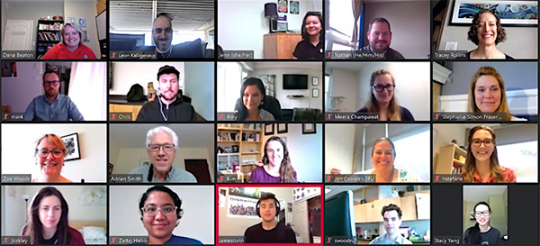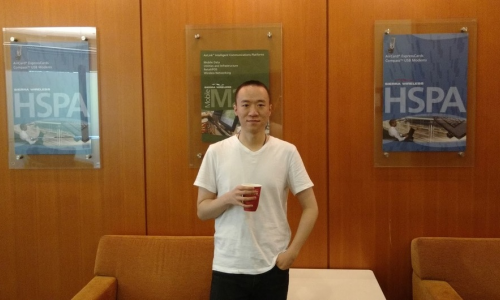
I wasn't sure what I was doing in post-secondary until I met with Academic Advisors and the Co-op coordinators. I firmly believe they steered me down the right path. Now I am in my first Co-op work term at SFU Residence and Housing as the Marketing and Communications Assistant. And through this placement, I have gained a great learning experience where I have gotten professional skills development and hands-on experience in the workplace. I can definitely recommend this program, and if you are following a similar path as me, here are a couple of things I wish someone had told me when I was starting out in a marketing communications role.

I wasn't sure what I was doing in post-secondary until I met with Academic Advisors and the Co-op coordinators. I firmly believe they steered me down the right path. Now I am in my first Co-op work term at SFU Residence and Housing as the Marketing and Communications Assistant. And through this placement, I have gained a great learning experience where I have gotten professional skills development and hands-on experience in the workplace. I can definitely recommend this program, and if you are following a similar path as me, here are a couple of things I wish someone had told me when I was starting out in a marketing communications role.
Forget the way SFU taught you to write
Although you should always conduct yourself in an academic professional manner; in marketing, you need to communicate differently. Firstly, you need to dive in right away in the first sentence. You are trying to get people’s attention, so get to the point right away. Bold and capital letters are great here as well. Secondly, you need to streamline your writing with basic wording. No need for large complicated words and sentences. And thirdly, implement a call to action – something that mobilizes your audience to do something with the information you provide. Phrases such as “check out” or “click here” can attract more engagement.
Do Your Homework
The vast internet has all the information you need, and it is all a Google search away. So, utilize this! Past generations did not have this tool, but you do. Take time to go online and learn how to do something, it will help you in the long run. And copying is the greatest form of flattery. Look at what other companies, schools, and brands are doing and emulate that. However, make it your own when doing this. Additionally, analytics will help you measure the influence of your marketing and communication efforts. This allows you to learn from what works and what does not.
Collaboration
Work with other people effectively. Employers like SFU have different departments you can collaborate with. Reach out to them for useful information you can utilize in your work so that your audience can benefit from accessing them. Also, it is a good idea to tag other departments and link to their resources because they will reciprocate this by doing the same for you.
Focus on the Audience
Understanding your audience and what they want is key to effective marketing. Audiences gravitate to storytelling through personal stories or expertise. So, make sure to showcase these stories for the average person. On the other hand, when you need to be informative, always think about the questions your audience will have. Support these with facts and stats. And always use a friendly casual voice and tone.
Visuals
A simple creative graphic adds great value in supporting your message. Ways you can do this are by finding an aesthetically pleasing image that grabs people’s attention. Typography is also very important here. Employers will most likely have a style/editorial guide and working within them offers a great framework for what fonts and colours you can use in your graphics. Ideally, your designs should have no more than two different fonts and colours each. And finally, make sure the image is relevant to the overall message.
Consistency
A consistent approach to engaging with your audience is key. Always make sure to respond to messages, emails, comments, and questions in a timely manner. Furthermore, the frequency of posts on social media can vary, but the best practice is to post three to five times a week on Facebook and Instagram, and eight to ten on Twitter. Additionally, you could make the most visually stunning graphics with a witty and funny caption, but if you are not offering something to the people looking at it, what is the point. Ask yourself if your work is informative, problem-solving, inspiring, and timely. Do this by linking to a helpful resource or offering a useful tip. Make sure everything you put out is of value to someone.
I am almost halfway through my first Co-op placement and can say for certain that this has been one of the most valuable experiences in my professional development. I have learned several valuable skills over these past four months. From Monday to Friday, I work with an amazing team for a great employer to offer a valuable service. At the end of the day, the goal is to collaborate with your colleagues in producing informative, and relevant content on a consistent basis. So, hopefully, some of the tips above have helped you in understanding what this industry is like and reduced some of the anxiety about working in Co-op you may have.
Beyond the Blog
-
For more opportunities like James', visit the Communications co-op page!
















